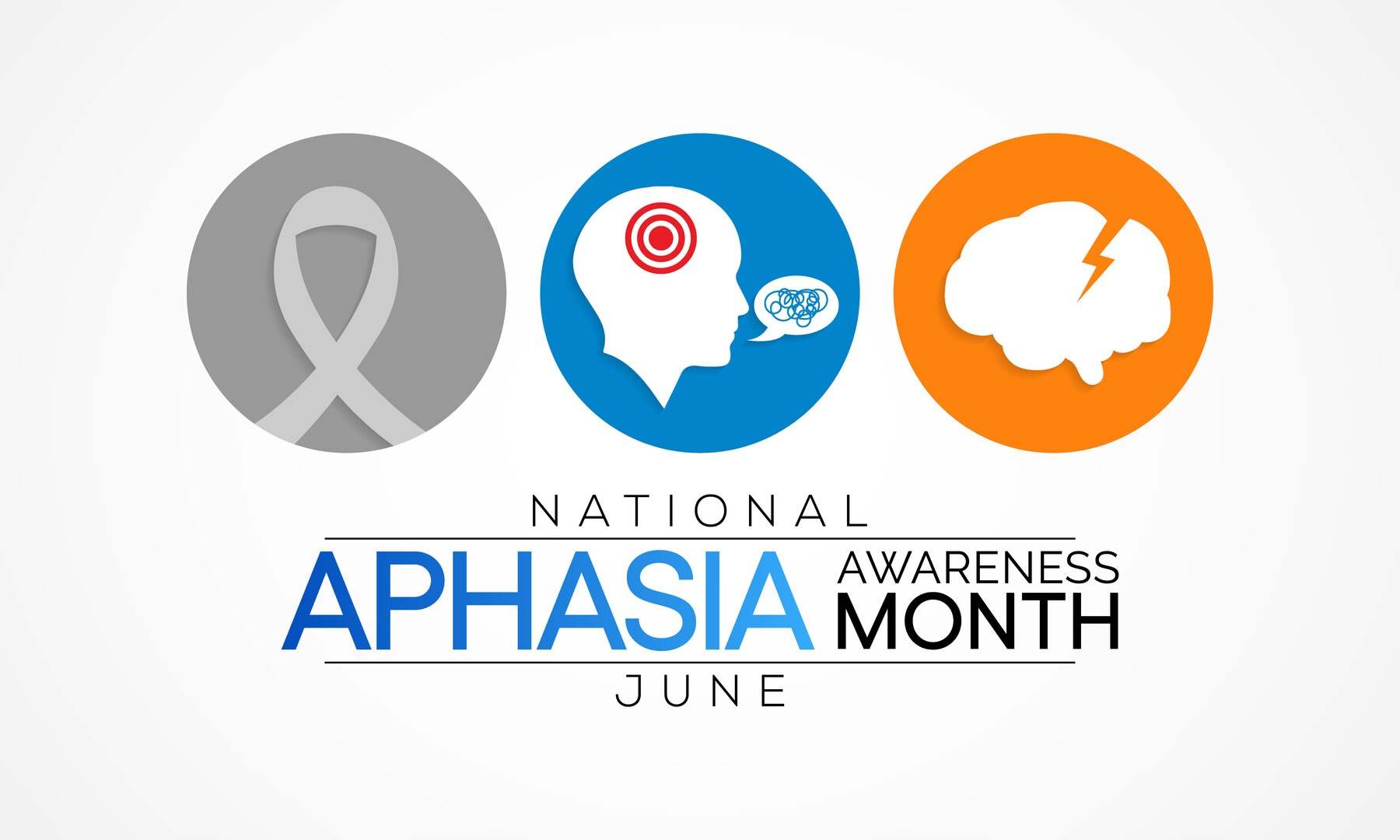June is National Aphasia Awareness Month, yet few Americans even know what aphasia is. According to the National Aphasia Association, 2 million people in the United States have aphasia, but 84.5% of Americans state that they’ve never heard the term aphasia.
What is Aphasia?
Aphasia is a language disorder that occurs when someone experiences brain damage, such as a stroke. The brain has two halves or hemispheres. Language skills are carried out in the left half of the brain. Damage on that side may lead to language problems. Damage on the right side of the brain may cause other problems, like poor attention or memory issues.
Aphasia may make it hard for someone to understand, speak, read, or write. It does not make them less intelligent or cause problems with the way they think. Brain damage can also cause other problems along with aphasia. People may have muscle weakness in and around the mouth, called dysarthria. They may have trouble getting the muscles of the mouth to move the right way to say words. This is called apraxia. They can also experience associated swallowing problems, which is called dysphagia.
Signs of Aphasia
Aphasia can lead to a number of different problems. Someone may have trouble speaking, reading, and writing. People with aphasia may experience the following:
- Cannot think of the words they want to say
- Say the wrong word without realizing it
- Change the order of compound words
- Use words that sound like gibberish
- Have a hard time creating sentences
- Use single words rather than sentences
- Create sentences that include non-words and real words
Comprehension
People with Aphasia may experience the following:
- Not understand what others are saying
- Have trouble understanding conversations in groups
- Be unable to understand humor or sarcasm
Reading and Writing
People with Aphasia may experience the following:
- Difficulty reading and comprehending magazines, books, and computer screens
- Unable to spell and put words together to write complete sentences
- Difficulty using numbers or doing math such as counting
Causes of Aphasia
Aphasia is most often caused by a stroke (brain bleed) but can occur as a result of any type of brain damage. This includes a traumatic brain injury, brain tumors, and certain types of dementia.
Testing for Aphasia
People should see a doctor if they have trouble speaking or understanding what people say. A doctor will determine if there is a medical cause for the problem. A speech-language pathologist, or SLP, will test their speech and language skills. The SLP will test how well someone:
- Understands words, questions, directions, and stories
- Says words and sentences
- Reads and writes
Treatments for Aphasia
Many people who suffer from aphasia following a brain injury will find it most beneficial to work with a speech/language pathologist. This can be done individually or in a small group. Some people with aphasia find it helpful to join a support group because it is a way of connecting to others who are experiencing the same type of communication challenge.
Tips for Communicating with a Person Who Has Aphasia
These tips may make it easier for you to understand and talk with those with aphasia:
- Make and keep eye contact
- Watch body language
- Talk in a quiet place
- Keep your voice at a normal level
- Keep the words simple but do use not baby talk
- Use shorter sentences
- Give them time to speak
- Try using drawings, gestures, writing, and facial expressions
- Ask them to draw, write, or point when having trouble talking
- Ask “yes” and “no” questions
Aphasia is a difficult and frustrating disorder for those who have it – it’s also caused by some other medical issue which adds to its complexity. If someone you care about has aphasia, please be patient and kind. It will go a long way in helping them recover.
Other Resources
The information in the above article is not intended nor implied to be a substitute for professional medical advice, diagnosis, or treatment. Always seek the advice of your physician or other qualified health provider with any questions you may have regarding a medical condition.
